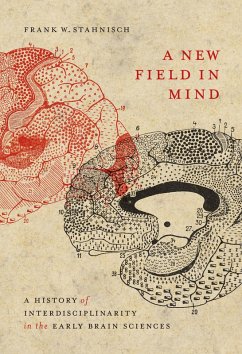In recent decades, developments in research technologies and therapeutic advances have generated immense public recognition for neuroscience. However, its origins as a field, often linked to partnerships and projects at various brain-focused research centres in the United States during the 1960s, can be traced much further back in time. In A New Field in Mind Frank Stahnisch documents and analyzes the antecedents of the modern neurosciences as an interdisciplinary field. Although postwar American research centres, such as Francis O. Schmitt's Neuroscience Research Program at MIT, brought the modern field to prominence, Stahnisch reveals the pioneering collaborations in the early brain sciences at centres in Germany, Austria, and Switzerland in the first half of the twentieth century. One of these, Heinrich Obersteiner's institute in Vienna, began its work in the 1880s. Through case studies and collective biographies, Stahnisch investigates the evolving relationships between disciplines - anatomy, neurology, psychiatry, physiology, serology, and neurosurgery - which created new epistemological and social contexts for brain research. He also shows how changing political conditions in Central Europe affected the development of the neurosciences, ultimately leading to the expulsion of many physicians and researchers under the Nazi regime and their migration to North America. An in-depth and innovative study, A New Field in Mind tracks the emergence and evolution of neuroscientific research from the late nineteenth century to the postwar period.
Dieser Download kann aus rechtlichen Gründen nur mit Rechnungsadresse in A, B, BG, CY, CZ, D, DK, EW, E, FIN, F, GR, HR, H, IRL, I, LT, L, LR, M, NL, PL, P, R, S, SLO, SK ausgeliefert werden.









